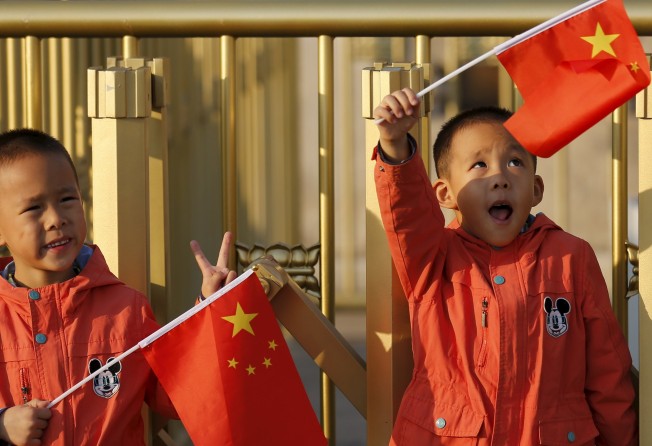Letters to the Editor, March 23, 2018

American-style taxes would be good for China
I am writing in response to your article on tax reforms being considered in China (“China ‘not ready’ for US-style whole family income tax”, March 20).
A US approach to taxation which allows couples to jointly file their tax returns based on whole family income is in focus, as China tries to have its tax regime reflect the rising cost of living and ensure global competitiveness.
Tax reform is not an easy task, but I believe both the nation and the individual citizen would benefit if the US model is followed for the mainland income tax system.
Firstly, faced with the problem of an ageing population and work force after several decades of a one-child policy, the central government has now eased restrictions on family planning, having implemented a two-child policy in the past few years.
However, a lot of Chinese families are not very eager to have a second child because of the high costs of bringing them up. If costs of education and medical treatment are deductible under the proposed household declaration of income tax, it would be good news for such families, and effective policy to encourage them to have more children.
Secondly, amid the central government’s nationwide anti-corruption campaign, a family-based tax structure will make the financial situation of households more transparent and help the revenue authorities keep an eye on any “grey” income.
Thirdly, family-based taxpayers may need the help of specialists to file their returns, as the procedure is quite complicated. This will stimulate the development of the financial services industry and more jobs would be created. As the last reset of the individual income tax system was more than six years ago, a review may be in order.
Yannan Li, Kowloon Tong
Many pitfalls of importing foreign system
I agree with economists who say that China not ready for US-style whole-family income tax, even though it is said to be garnering attention in some quarters.
As Liu Shangxi, head of the finance ministry’s research institute, said: Chinese taxpayers are not yet ready for the complex filing process needed to impose taxes on a family as unit.
While China should learn from the lessons of developed nations, including the US, there can be pitfalls to implementing family-based income tax.
Firstly, “grey income” is very hard to monitor, as family income becomes increasingly complex, including that from public business, governmental official salaries or private business, to even income from social media. Second, if rebates are allowed for tuition fees and medical bills, these could even be falsified for tax evasion.
Besides, due to the complicated census registration policy in China, many people do not have a registered permanent residence.
So it would be difficult to regulate the local tax for some floating populations. With more and more younger workers choosing not to stay in the cities where their families are, it is doubtful whether household declaration would make taxation fairer.
It would also prove challenging to get comprehensive information on the income situation of all family members as well the financial assets they own.
It is not feasible for China to adopt a new taxation policy that is closer to the US model, as there are huge differences in financial and social realities between the two countries.
Yanglin Ding, Yau Yat Chuen
Illegal artefacts a thorny issue for Hong Kong
I refer to your report on the laundering of illegally obtained cultural objects (“Hong Kong must shut door on illicit trade in antiquities before it can emerge as global art hub”, March 10)
I think it is really difficult for Hong Kong to tackle the problem and enforce related laws, given the city’s proximity to mainland China, and the rise in value of Chinese antiquities.
Wealthy Chinese citizens are no longer satisfied with luxurious cars or villas, and are purchasing artworks at high prices to demonstrate their unique social status, as the Chinese believe that only very wealthy or cultured families can possess antique artefacts.
Amid a general idea that many fake commodities are traded in the mainland, the wealthy prefer Hong Kong. Also, some antiques dealers are not above buying stolen artefacts and acquiring a new certificate. That makes regulation more complicated. Moreover, antiques are often tied to corruption. There have been reports about corrupt officials in China who accepted jade artefacts as bribes. So some rich people may buy antiques not only for their collection but also for use in bribery.
For their part, authorities in mainland China in November 2016 banned the auction of cultural relics that had been stolen, illegally unearthed, smuggled or looted from the country.
Zhai Xiaoyan, Tai Wai
Online pirates doing what’s easy but wrong
I am writing in response to your report on Hong Kong’s clampdown on online piracy, and a push for legal protection for the creative and technology sectors.
I do not mean to pick a fight with those who download multimedia from the internet. After all, it is a convenient way to access your favourite music, films or video games.
However, I would like to burst their bubble of ignorance, intentional or otherwise. Downloading multimedia without respecting copyrights may be convenient, but it is wrong. Such downloads infringe the rights of creative minds behind the content, as well as the entertainers or video game producers, and are illegal.
If we enjoy creative content online, we should support the artists and companies behind it.
Cain Lam, Tai Po